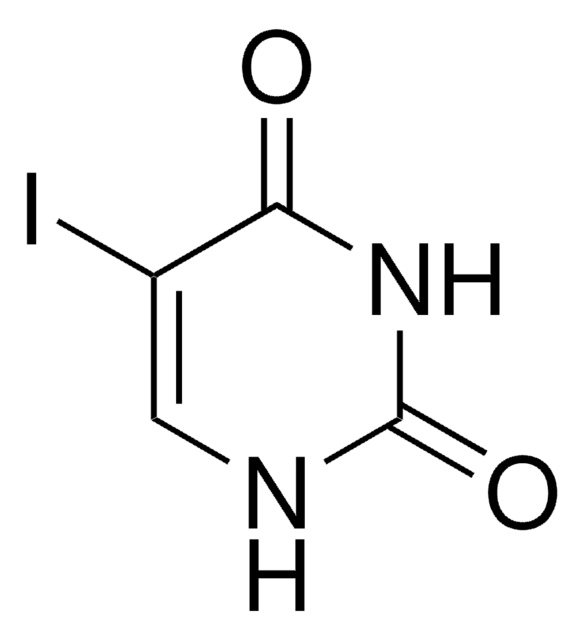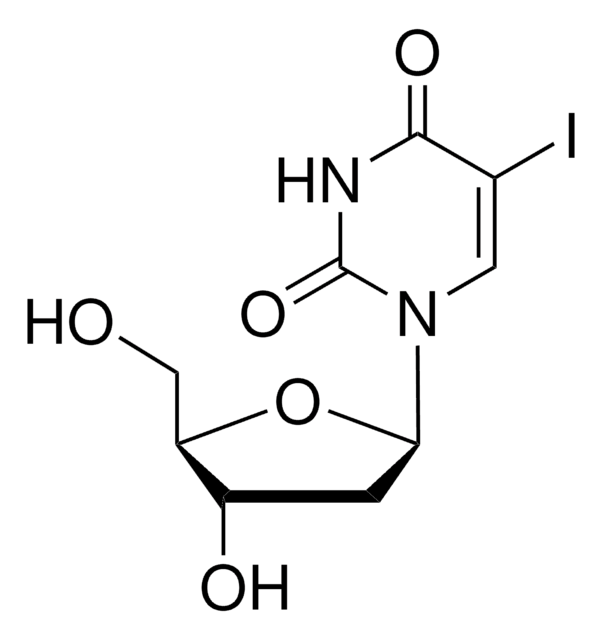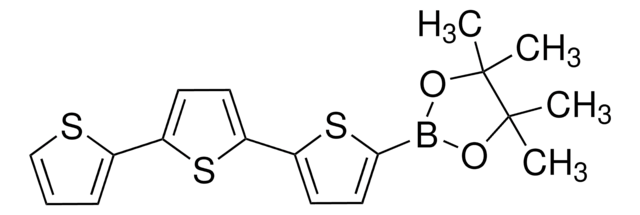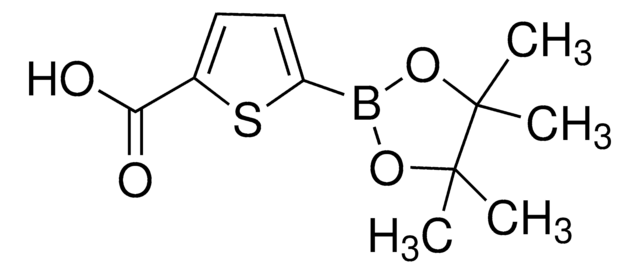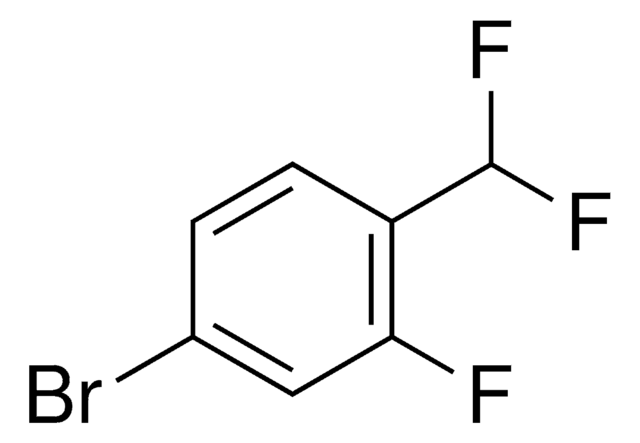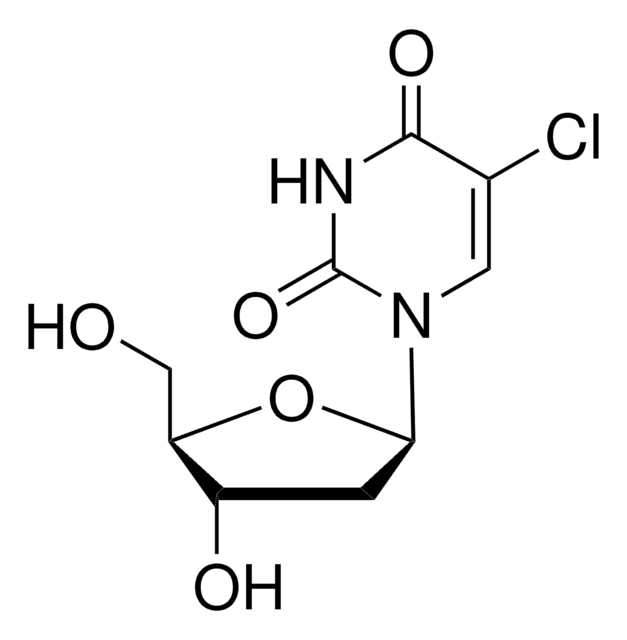852597
5-Iodouridine
95%
Synonym(s):
2,4-Dihydroxy-5-iodo-1-β-D-ribofuranosylpyrimidine
Sign Into View Organizational & Contract Pricing
All Photos(1)
About This Item
Empirical Formula (Hill Notation):
C9H11IN2O6
CAS Number:
Molecular Weight:
370.10
Beilstein:
33665
EC Number:
MDL number:
UNSPSC Code:
12352100
PubChem Substance ID:
NACRES:
NA.22
Recommended Products
Quality Level
Assay
95%
form
powder
mp
205-207 °C (dec.) (lit.)
storage temp.
2-8°C
SMILES string
OC[C@H]1O[C@H]([C@H](O)[C@@H]1O)N2C=C(I)C(=O)NC2=O
InChI
1S/C9H11IN2O6/c10-3-1-12(9(17)11-7(3)16)8-6(15)5(14)4(2-13)18-8/h1,4-6,8,13-15H,2H2,(H,11,16,17)/t4-,5-,6-,8-/m1/s1
InChI key
RKSLVDIXBGWPIS-UAKXSSHOSA-N
Looking for similar products? Visit Product Comparison Guide
Storage Class Code
11 - Combustible Solids
WGK
WGK 3
Flash Point(F)
Not applicable
Flash Point(C)
Not applicable
Personal Protective Equipment
dust mask type N95 (US), Eyeshields, Gloves
Choose from one of the most recent versions:
Already Own This Product?
Find documentation for the products that you have recently purchased in the Document Library.
Customers Also Viewed
Dehalogenation reactions in fast atom bombardment mass spectrometry.
S K Sethi et al.
Analytical chemistry, 56(11), 1975-1977 (1984-09-01)
Daniel E Ryan et al.
RNA (New York, N.Y.), 10(8), 1251-1265 (2004-07-24)
Elucidation of the three-dimensional (3D) structures of the two sequential active sites in spliceosomes is essential for understanding the mechanism of premessenger RNA splicing. The mechanism is predicted to be catalyzed by the small nuclear RNA (snRNA) components of spliceosomes.
B L Golden et al.
RNA (New York, N.Y.), 2(12), 1295-1305 (1996-12-01)
For small RNAs, isomorphous heavy-atom derivatives can be obtained by crystallizing synthetic versions that incorporate modified nucleotides such as iodo- or bromouridine. However, such a synthetic approach is not yet feasible for RNAs greater than approximately 40 nt. We have
W T Stump et al.
RNA (New York, N.Y.), 1(1), 55-63 (1995-03-01)
The N-terminal RNA binding domain (RBD) of the human U1A snRNP protein binds tightly and specifically to an RNA hairpin that contains a 10-nucleotide loop. The protein is one of a class of RNA binding proteins that adopts a beta
Y C Cheng et al.
Journal of virological methods, 5(3-4), 209-217 (1982-11-01)
A rapid, reproducible and objective new method for typing herpes simplex viruses type 1 (HSV-1) and type 2 (HSV-2) based on the effects of virus-induced thymidine kinases on various antiviral drugs has been developed. When several laboratory strains and clinical
Our team of scientists has experience in all areas of research including Life Science, Material Science, Chemical Synthesis, Chromatography, Analytical and many others.
Contact Technical Service